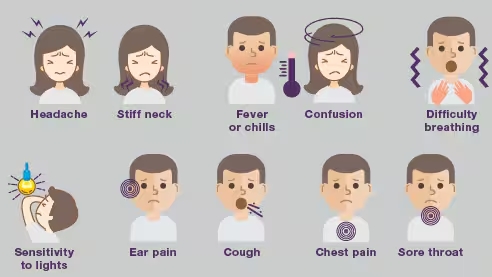The United States uses 2 types of pneumococcal vaccines. Each individual vaccine helps protect against different serotypes of pneumococcal bacteria.
- Pneumococcal conjugate vaccines (PCVs)
- Pneumococcal polysaccharide vaccine
Pneumococcal vaccine recommendations have been updated as of June 27, 2024, to recommend PCV21 for adults.
Infants and children
CDC recommends routine pneumococcal vaccination for all children younger than 5 years old.
Administer a 4-dose PCV series (PCV15 or PCV20), 1 dose at each of the following ages:
- 2 months
- 4 months
- 6 months
- 12 through 15 months
Vaccinate children younger than 5 years of age who miss their shots or start the series later than recommended. Catch – up guidance for healthy children aged 4 months through 4 years can be found here.
Adults aged 50 years or older
CDC recommends routine pneumococcal vaccination (PCV15, PCV20, or PCV 21) for all adults 50 years and older who have never received PCV vaccine, or their vaccination history is unknown.
If PCV 15 is used, administer a dose of PPSV23 one year later, if needed*.
- If PPSV23 is not available, one dose of PCV20 or PCV21 may be given.
- *Only one dose of PPSV23 is indicated. If previously administered, another dose isn't needed.
Based on shared clinical decision making, adults aged 65 years and older have the option to receive PCV 20 if they’ve received:
- PCV13 (but not PCV15 or PCV20) at any age and
- PPSV23 at or after the age of 65 years old
Pneumococcal vaccine is also recommended for children and adults at increased risk for pneumococcal disease.
See Summary of Risk – based Pneumococcal Vaccination Recommendations or the PneumoRecs VaxAdvisor for details.
CDC estimates that rates of invasive pneumococcal disease (IPD) in children less than 5 years have decreased by 95% since the introduction of PCVs. Rates of IPD in adults also decreased after routine vaccination with PCV was recommended for children.






